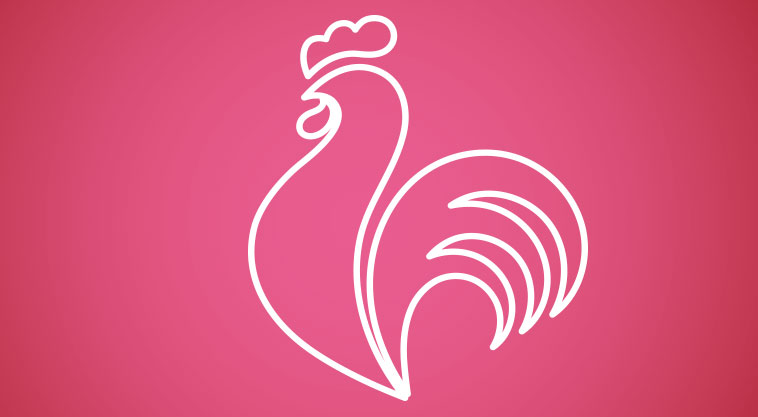Clothes for the Soul

Why do we say the brachah of “malbish arumim”?

"I’ve got nothing to wear!”
Clothes are piled over the chair and bed, and the closet is full. But we still bemoan our lack of apparel. Why?
It’s not that we don’t have a skirt, top, or dress. It’s that we don’t have just the right outfit for the occasion: not too dressy but not too casual. Comfortable but stylish. We deliberate our choice of outfit because we’re acutely aware that clothes aren’t just clothes: What we wear conveys subliminal messages, both to ourselves (these shoes make me feel confident) and to others (I’m a person who’s conservative, but with a twist of style).
It’s interesting to note that Hashem grants us many gifts — and most of these do not come with an accompanying brachah. We don’t say a brachah on flowers, a day of sunshine, or upon lying down in bed after a long day (though we may feel like saying one…). So why do we say the brachah of “malbish arumim”?
Clothing and Honor
Adam and Chavah were created without clothes. Their physical bodies were the clothing of their souls, and they had no cause for shame, as their outer world and inner world were in perfect harmony. After their sin, “their eyes were opened” and they realized their need to cover themselves. In fact, the word for clothing, levush, is a contraction of the words lo bosh — without shame.
Rav Avigdor Miller explains that the clothes Adam sewed ensured that he could maintain a state of modesty. However, Adam and Chavah were then given a set of garments by Hashem Himself. This second set gave Adam and Chavah more than modesty: It gave them a sense of dignity. Hashem was teaching Adam that he is higher than the animal kingdom, and his clothes should inspire a more exalted behavior.
This message of distinction, Rav Schwab notes, is the reason we don’t cover our faces or hands. A human face clearly reflects one’s Divine image, and hands are the medium through which we control the world, both characteristics unique to humans. If clothing provides us with dignity, lack of clothing relegates us to the world of the external. Rav Pincus explains that when we’re unclothed, we’re just a body. Animals need no clothing: The word for animal is beheimah, a contraction of the words bah ma — what is in it? With no soul, animals have no reason to cover their bodies.
Clothes allow us to focus on our internality, our essence. This is why, in the Gemara, Reb Yochanan referred to his clothes as his “honor.” The Kohanim could only perform the avodah when they wore the Bigdei Kehunah; the clothes reminded them of their elevated status. Likewise, wearing special clothing on Shabbos clues us in to the kedushah of the day. Our behavior follows suit.
Shabbos clothing is an external reminder of the unique nature of this day. This principle holds true on weekdays as well. Rav Elya Lopian points out that our modest clothing is a visual reminder that we have been created in the image of Hashem — and we have been invested with incredible importance. Our focus on clothes, whether our own or others, can be a portal for us to reflect on the special power we have to affect worlds, and how the small acts we do create cosmic effects. Saying this brachah is an opportunity to reflect on how clothes are so much more than a tailored piece of fabric, they’re a medium that impact our thoughts and behaviors.
Clothed in Kindness
Rav Moshe Bernstein in Laboker Rinah focuses on the tremendous kindness that is hinted to in this brachah. Hashem personally clothed Adam and Chavah after their cheit (see Rabbeinu Bechaye on Bereishis 3:21). Let’s think about this for a moment: Adam and Chavah had just brought death and destruction to the world. They had been in nothing less than Gan Eden, able to bring the world to the ultimate Shabbos — and through their cheit, they condemned the world to thousands of years of heartbreak and longing.
And yet, Hashem clothes them.
In our own lives, how many times are we undeserving — and yet we still experience Hashem’s kindness. Even while we are turning away from Him, Hashem gives us life and health and breath after breath. When we say the brachah “malbish arumim” each morning, we can pause and appreciate the gifts, both big and small, that Hashem bestows upon us even when we are unworthy.
Part of our job description as Jews is to emulate Hashem. This brachah inspires us to reach out to people even when they may not deserve our generosity or largesse.
Closet of the Soul
Rav Efraim Fordham in L’fanav Na’avod understands this brachah as referring to more than physical clothes. The mitzvos we perform are our adornment of our neshamos, and they provide us with spiritual raiment. The Shelah Hakadosh points out that after we die, every mitzvah we have performed will form the garment of our soul in the Next World, and serve as our protection. This brachah thanks Hashem for the daily opportunity to perform so many mitzvos, each of which enables us to weave a beautiful, spiritual garment that will belong to us forever.
As women, we spend a huge chunk of time involved with clothing. Does the laundry ever end? We shop for clothing, wash, fold, iron, and mend. Some spend time sewing or embroidering. What message does this give us about the effort we must invest into our spiritual clothing? Do we search for the mitzvah that is so unique that no one else is “wearing it”? Do we ensure that our mitzvos are “sparkling clean”? Are we concerned that our family’s wardrobe is being constantly updated with new and more mitzvos?
There’s a famous story of the encounter between Rav Yosef Yoizel Horowitz and Rav Yisrael Salanter. “What do you do?” Rav Yisrael Salanter asked him.
“I work so I can live,” Rav Yosef Yoizel replied.
“More important than to have what you need to live,” Reb Yisroel replied, “is to have what you need to die.”
Rav Yisrael’s words had such an impact that Rav Yosef Yoizel spent the next seven years secluded in Torah study. He ultimately became known as the Alter of Novardok, and his yeshivah became synonymous with rigorous perfection of character.
On the most practical level, Rav Alexander Mandelbaun in Aromimcha Elokai Hamelech teaches that this brachah reminds us to appreciate the beautiful clothes we own. Our clothing keeps us warm in the winter and cool in the summer. The brachah also includes the awareness that Hashem inspires people to make clothing that we’ll appreciate and enjoy wearing.
Nothing to wear? Think again of all the kindness that Hashem has invested in the clothing we own. Think of how our clothing is designed to inspire us to appreciate our unique role and intrinsic worth. Just as each outfit gives off a message to the world, each piece of clothing offers a spiritual message to its wearer.
(Originally featured in Family First, Issue 587)
Oops! We could not locate your form.



